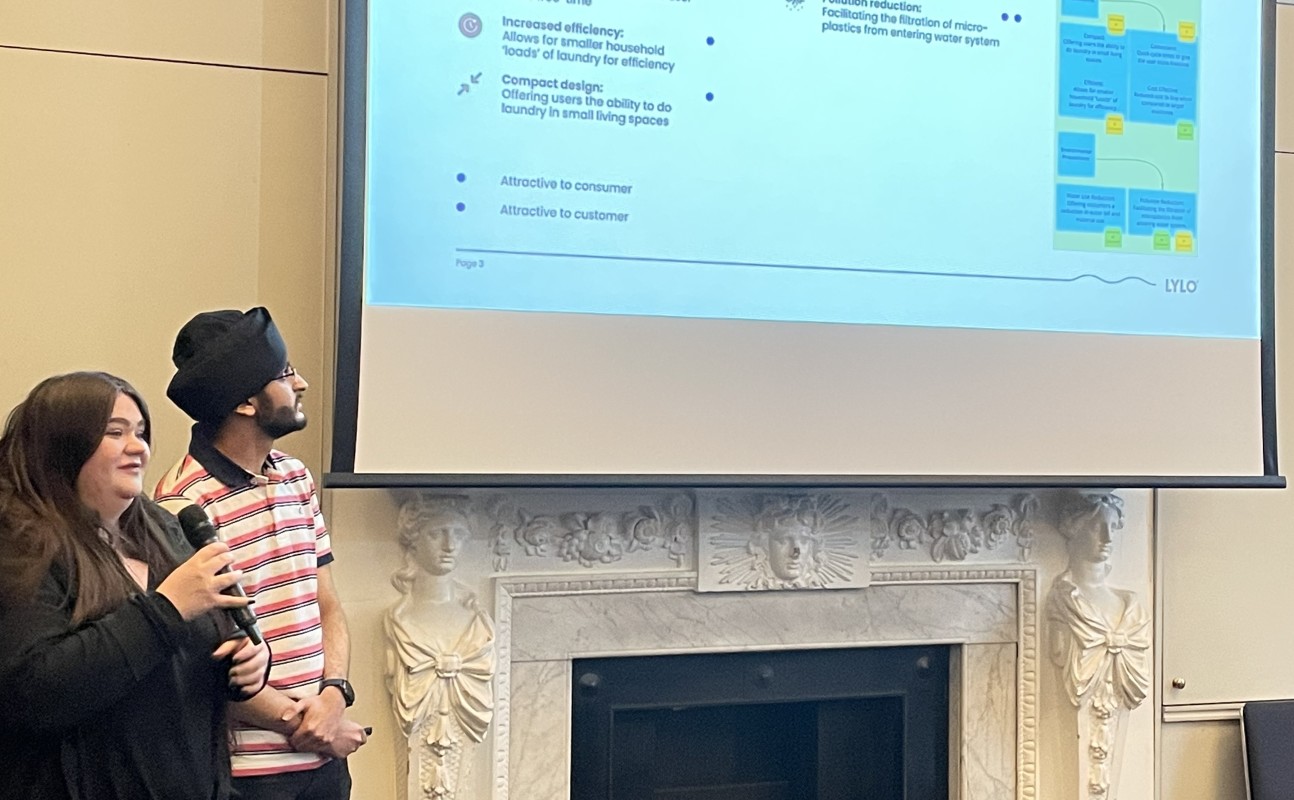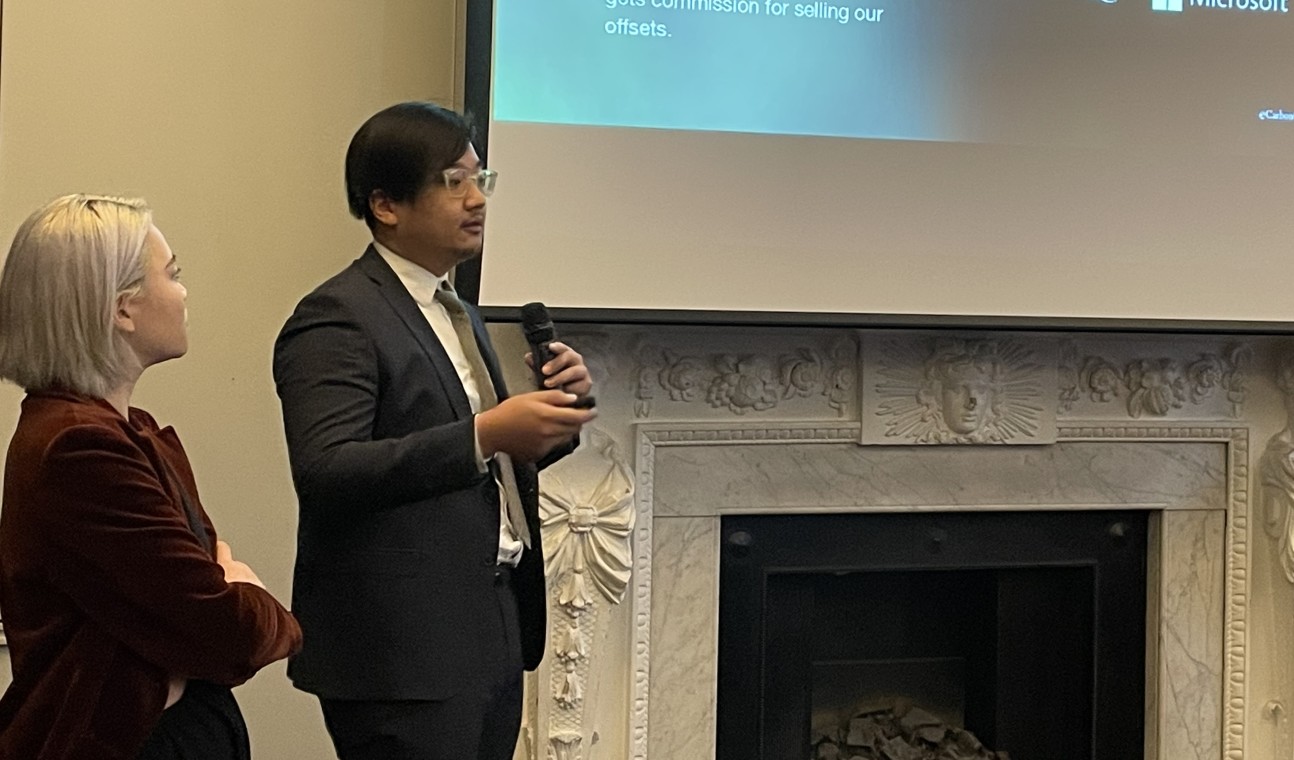Fifteen new businesses to receive support from The Greenhouse accelerator

Startups with emerging climate-friendly products and environmental business ideas are joining the third cohort of The Greenhouse programme.
Carbon negative construction materials, a natural dye from food waste, computer vision for detecting and forecasting farm pests and a sustainable alternative to synthetic fertiliser are among the new innovative ideas being supported by the Centre for Climate Change Innovation from February 2022.
Fifteen startups with a climate change and environment focus will join The Greenhouse, a 12-month programme that aims to support them in developing the skills and experience needed to succeed in a competitive marketplace.
In the past year, this ‘accelerator’ programme has supported 29 successful startups with innovations that will have an impact on climate change.
Climate change is leading to dangerous storms, heatwaves and droughts, and human activities will continue to create the greenhouse gases that heat the planet unless we find new ways to live, farm, travel and manufacture the things we need to survive.

The Greenhouse supports the growth of young, sustainable businesses looking to tackle climate change using the knowledge and experience of innovation experts grown out of Imperial College London, named the best university in Europe for entrepreneurs.
This 12-month accelerator programme delivered by Imperial’s Centre for Climate Change Innovation offers climate positive startups and early-stage (pre-seed) entrepreneurs access to business coaching with experienced professionals, a range of masterclasses, free workspace at the Royal Institution and equity-free grant funding.
Solutions that will have an impact on climate change
Naveed Chaudhry, Co-Founder and Head of The Greenhouse at Imperial’s Centre for Climate Change Innovation, said: “For this round of applications to The Greenhouse we received significantly more submissions than in the past. This shows a growing interest in climate innovation that is set to accelerate even further in the upcoming years. We have selected a fantastic group of startups with innovations that will have a significant impact on our transition to net zero.”
Professor Richard Templer, Director of Innovation at the Grantham Institute, said: “London is more than ever recognized as the best place for entrepreneurs. The climate innovators that are joining this cohort will have unique access to networks, support and resources to accelerate their growth and become commercially successful enterprises. We look forward to working with them.”
Michaela Wright, Head of Corporate Sustainability at HSBC UK, said: “We know that about half of the solutions needed to transition to net zero don’t exist in a commercially deployable form and that is the key part of this programme for us. We are pleased to be supporting Imperial and this group of home-grown ventures.”
 The Greenhouse accelerator is part of a Centre for Climate Change Innovation, a major joint initiative between the Grantham Institute at Imperial and the Royal Institution. It is backed by six founding members: Arup, the Mayor of London, HSBC UK, Centre for Net Zero, Pollination and Slaughter and May.
The Greenhouse accelerator is part of a Centre for Climate Change Innovation, a major joint initiative between the Grantham Institute at Imperial and the Royal Institution. It is backed by six founding members: Arup, the Mayor of London, HSBC UK, Centre for Net Zero, Pollination and Slaughter and May.
The centre brings businesses, entrepreneurs, policymakers, academics and the public together around climate change innovation, creating a focus for London-based innovators to implement global change through pioneering, practical solutions.
A new cohort of climate innovators
The third cohort of The Greenhouse includes:
- Agave Networks: a Business to Business (B2B) blockchain-tracking marketplace that rewards small and medium-sized enterprise (SME) manufacturers for upscaling their excess materials to higher-value alternatives.
- Bioataraxis: developing a key substance used in cleaning products (surfactant) that is made from 100% plant-based waste and performs as well as petrochemical-based alternatives.
- BioZeroc: making a carbon-negative construction material without the limestone and high temperatures needed to manufacture cement.
- Grounded Carbon: building a decentralised ledger (record-keeping system) that brings rigour, trust and transparency to the soil carbon-offset market.
- CarbonShift: developing a software platform for businesses seeking to decarbonise their building portfolio at the lowest cost.
- Climate Business: reducing the risk of the net zero transition for property sector businesses by building trust, understanding and adaptability across supply chains.
- CO2CO: decarbonising the atmosphere using micro-algae, (algae invisible to the naked eye) while re-carbonising the biosphere with biochar (a high-carbon form of charcoal).
- Croptimise: using computer vision for detecting and forecasting farm pests.
- Ferris: a zero-waste app for giving and getting once-loved items for free. Inspiring consumers to reduce waste by making the circular economy fun and rewarding.
- HydroHammer: improving the hydraulic ram pump to reduce the carbon emissions and risks, while increasing output and resilience of hydroelectricity.
- Lylo Products: promoting water efficiency by offering products that find new and innovative ways to reuse and recycle water.
- Monte Plastics: a chemical recycling technology turning unrecyclable plastic waste from healthcare and life sciences into virgin-like feedstock for clinical or food-contact plastics.
- NetZeroNitrogen Ltd: developing a sustainable alternative to synthetic fertilisers.
- Radiant Matter: developing the next generation of colour and material solutions for the circular textiles economy with biomaterials.
- SAGES: making natural dyes from food waste as an alternative to the harmful synthetic dyes the textiles industry currently uses.
Applications for the fourth cohort of The Greenhouse will open in Spring 2022.
